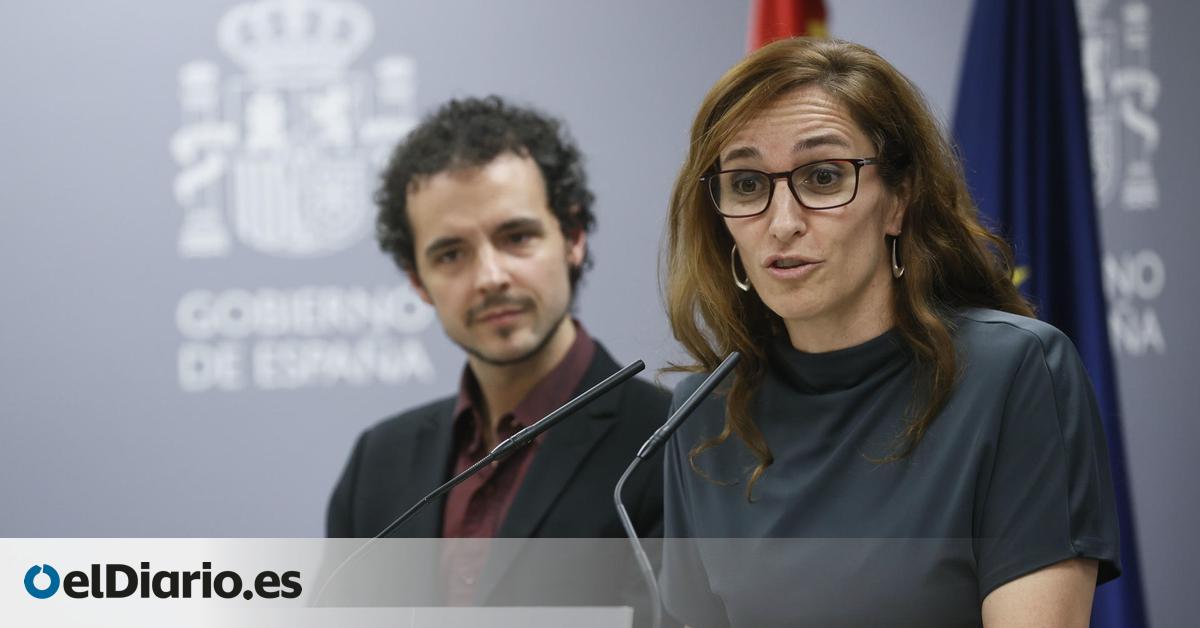
The expansion of a new variant of monkeypox in Africa (clade I) and its potential ability to cross borders has pushed the World Health Organization to declare an international health emergency this week. 24 hours later, Sweden announced that it had detected a case of a traveler from Africa compatible with this new mpox clade about which there are still many unknowns, the WHO itself admits.
It is not entirely clear how transmission works with this variant or whether it is more severe. Until now, it was linked to intimate contact, especially during sexual relations; however, now the majority of new cases on the African continent affect children. The WHO, still with many cautions due to limited information, has indicated that everything points to it being “more severe”. Three African countries, apart from the Democratic Republic of the Congo – where the largest volume of infections is concentrated – have confirmed the presence of the new variant in cases detected through genetic sequencing. They are Rwanda, Uganda and Kenya, the European Centre for Disease Prevention and Control (ECDC) has reported.
“Low” risk in Europe
Following the Swedish case, the ECDC warns that it is “very likely” that Europe will see more imported cases of clade I although “the probability of sustained transmission on the continent is very low provided that they are diagnosed quickly and control measures are applied.” The risk is “low” for the general population, the European body maintains in a new risk assessment published this Friday. In the case of close contacts of imported infections, the probability of infection is “high” although “the severity of the disease is expected to be low”, except in the case of other conditions, such as immunosuppression.
Extrapolating what is happening in Africa to Spain is also not advisable because its capacity to locate, diagnose, treat and monitor the virus is much more limited. “The capacity of these countries to provide information that can be compared is complicated,” explained the Director General of Public Health, Pedro Gullón, in an interview this Thursday on Cadena Ser. The Ministry of Health has confirmed that the cases diagnosed in Spain in 2024 “have not behaved differently, with other symptoms or different severity, than those we have had since 2022,” according to a note sent to the media.
As of August 8, the National Epidemiological Surveillance Network (RENAVE) has reported 264 cases of mpox, “most of them in men with a median age of 37 years and born in Spain.” Although in the European Union country with the most cases, Gullón assured that Spain has not had a “large increase in cases.” In 2022, when the first international public health emergency was declared, 7,500 were detected. The curve was then flattened with two tools: surveillance and vaccination.
Who should get vaccinated in Spain?
The Health Department prescribes serum for all close contacts who have not had the disease (as post-exposure prophylaxis) and also, as a preventive measure, for the following risk groups: “People who engage in risky sexual practices, especially but not exclusively GBHSH (Gays, Bisexuals and Men who have Sex with Men); people at occupational risk such as health personnel in specialized consultations for STI/HIV care who care for people with high-risk practices and laboratory personnel who handle samples potentially contaminated with the Monkeypox virus”. Also included is “personnel in charge of disinfecting surfaces in specific premises where risky sexual relations are maintained, provided that the adequate use of individual protection elements cannot be guaranteed”.
The team led by Minister Mónica García recalled last week that it was important to complete the vaccination, consisting of two doses. Only half of the people had done so (20,000 out of 40,000). The Ministry has drawn up a list with the points to be vaccinated in each autonomous community. Spain has vaccines from previous purchases in the refrigerators, confirms the Ministry of Health, although they are waiting to see how the cases evolve in case it is necessary to acquire more.
Spain will participate next Monday in the meeting of the EU Health Security Committee with all member countries, from which joint recommendations will likely emerge in light of the new situation. That same day, a technical group from the Ministry will meet – made up of the Coordination Centre for Health Alerts and Emergencies, the National Epidemiology Centre, the National Microbiology Centre, the HIV and Vaccines Division – “to discuss the actions arising from the alert”. Finally, for Tuesday, the Ministry has called the autonomous communities through the Alerts Committee with the idea of debating whether surveillance measures in Spain should be changed.
The director of the European WHO, Hans Kluger, has called on the 53 countries in the region – also including Central Asia – “to strengthen surveillance, issue sound public health advice and strengthen access to vaccines and antivirals.” “It was only a matter of time before mpox Clade I, which appears to be more severe than Clade II, was detected in other regions given our interconnected world,” he said in a message on X, in which he also urged governments, authorities and the general public not to “stigmatize or discriminate” against affected people and communities. to avoid repeating what happened in 2022.
Source: www.eldiario.es

